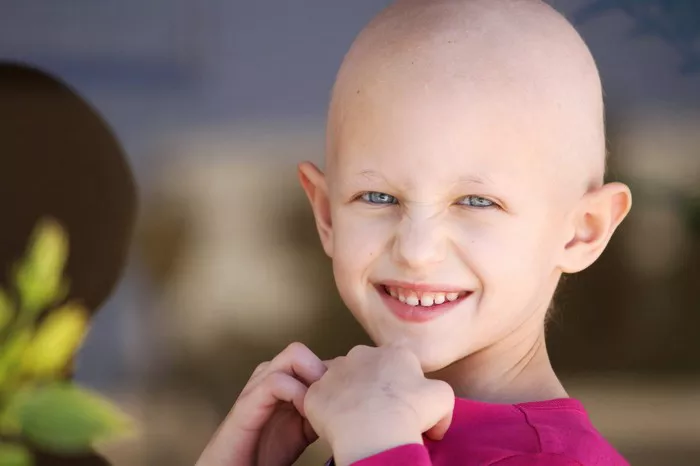As parents observe the tender moments of their newborn’s growth, they may notice a common phenomenon: infant hair loss. This natural occurrence often raises questions and concerns among caregivers, leading them to seek answers about the causes and implications of their baby’s hair falling out. In this comprehensive article, we delve into the reasons behind infant hair loss, dispel myths, explore remedies, and provide valuable insights for parents navigating this developmental stage.
Understanding Infant Hair Loss
Infant hair loss, also known as neonatal alopecia, is a temporary and typically benign condition characterized by the shedding of a baby’s hair within the first few months of life. While alarming to some parents, it is important to recognize that this phenomenon is a normal part of infant development and rarely indicates an underlying health issue.
Causes of Infant Hair Loss
Several factors contribute to infant hair loss, each with its own distinct mechanism:
1. Hormonal Influences: During pregnancy, maternal hormones can stimulate the growth of a baby’s hair in utero. However, after birth, as these hormonal influences diminish, infant hair may enter a resting phase, leading to shedding.
2. Transitional Phase: Infant hair often undergoes a transition from the fine, wispy strands present at birth to thicker, more robust hair over time. This transitional phase may involve the shedding of initial hair as new hair follicles develop and mature.
3. Friction: The delicate scalp of an infant is susceptible to friction from bedding, clothing, and frequent handling. This friction can contribute to hair breakage and loss, particularly in areas where infants spend extended periods resting or sleeping.
4. Genetic Factors: In some cases, genetic predispositions may play a role in infant hair loss. Certain inherited conditions or family traits could influence the timing and extent of hair shedding in newborns.
5. Normal Growth Patterns: Just as adults experience natural cycles of hair growth and shedding, infants also undergo similar patterns of hair turnover as part of their developmental process.
Dispelling Myths about Infant Hair Loss
Despite its common occurrence, infant hair loss can give rise to misconceptions and unfounded beliefs. It is essential to dispel these myths to alleviate parental concerns:
1. Myth: Baldness Indicates Poor Health – Contrary to popular belief, infant hair loss is rarely a sign of underlying health issues. In the absence of other symptoms, it is usually a transient phase of normal development.
2. Myth: Hair Loss Is Permanent – While infant hair loss may seem dramatic, it is temporary in nature. Most babies regrow their hair within the first six to twelve months of life as part of the natural growth cycle.
3. Myth: Hair Loss Results from Nutritional Deficiencies – Adequate nutrition is essential for overall health, but infant hair loss is not typically indicative of nutritional deficiencies. Breastfed and formula-fed babies alike may experience hair shedding as part of their normal growth process.
Remedies and Care Tips
While infant hair loss is a natural occurrence, parents may still seek ways to promote healthy hair growth and minimize shedding. Consider the following remedies and care tips:
1. Gentle Handling: Handle your baby’s scalp with care, avoiding excessive rubbing or brushing that could contribute to hair breakage. Opt for soft-bristled brushes or gentle fingertip massages to stimulate circulation without causing damage.
2. Avoid Tight Headgear: Restrictive headbands, hats, or other accessories can exert pressure on an infant’s delicate scalp, potentially exacerbating hair loss. Choose loose-fitting headgear made from breathable materials to minimize friction and discomfort.
3. Maintain a Healthy Environment: Create a nurturing environment conducive to optimal hair growth by ensuring adequate hydration, nutrition, and protection from environmental stressors. A well-balanced diet rich in essential nutrients, including vitamins A, C, and E, supports overall hair health.
4. Consult a Pediatrician: If you have concerns about your baby’s hair loss or notice unusual patterns of shedding, consult your pediatrician for personalized guidance and reassurance. Your healthcare provider can offer valuable insights and address any underlying issues that may require attention.
Conclusion
Infant hair loss is a natural and transient phenomenon that occurs in many newborns within the first few months of life. Understanding the causes, dispelling myths, and implementing appropriate care strategies can empower parents to navigate this developmental stage with confidence and peace of mind. By prioritizing gentle handling, maintaining a healthy environment, and seeking guidance from healthcare professionals when needed, parents can support their baby’s optimal growth and well-being while embracing the beauty of their ever-evolving appearance.


